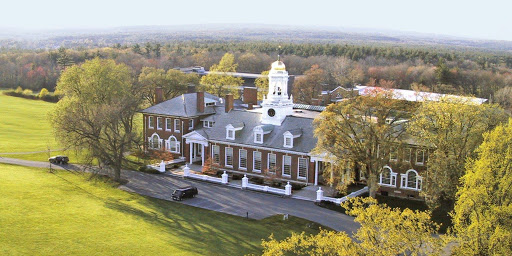Given all the problems that there are in the world, I have not been very concerned about private schools not charging enough, but it is good to know there is somebody paying attention. Not too long ago, the lead op-ed in the New York Times was titled Is Private School Not Expensive Enough ? I couldn’t resist. The piece was by R. Scott Asen. Here is a bit of his bio
In 1977, Mr. Asen became a general partner of Pioneer Ventures, a group of investment entities funded originally by a wealthy New Yorker. Throughout the following two decades, Mr. Asen had primary responsibility for managing the various Pioneer Ventures entities, which were successfully liquidated over a number of years through 2002. Mr. Asen currently sits on the boards of three privately held companies, is a Trustee of Groton School and The Paris Review, and is a board member of the Island Foundation. Mr. Asen graduated from Harvard College in 1966.
In other words, he’s smarter than me, I guess.
Anyway he indicates that many private boarding schools cost around 50 grand. Groton where he was on the board is $49,810. It’s not enough. You just can’t set things up to train kids to be in the 1% for short money like that.
Virtually every private-school parent has heard about “the gap” — the difference between tuition dollars received by the school and the actual costs of operating the institution. This information is usually delivered by the development (read fund-raising) office, along with a heartfelt plea to help plug that gap with a donation.
Mr. Asen headed the development committee at Groton for some time and he has finally gotten fed up with the slackers who are able, but not willing to cover “the gap”.
This brings us to a troubling conclusion: To the extent that any family with the wherewithal is paying less than the full cost of the product it is buying through combined tuition payments and donations, that family is effectively being subsidized by other current and past donors. Not only is this ethically unsupportable, but ultimately, it is also financially unworkable.
He has a solution:
During the admissions process, along with quoting the stated tuition, the school should inform all families of the real costs of operation on a per-student basis and, further, tell them that they will be expected to fill as much of the gap between tuition and cost as they are able with a donation. To determine this number, the same level of financial disclosure currently asked of financial-aid applicants will be asked of them, and a means-testing exercise will be used to determine capability. Any family not willing to provide such disclosure would simply be told that the school expected the full gap to be met with a donation.
Assuming that Groton is at the 50% mark that he cited and you had not planned to ask for financial aid and were just going to pay the 50 grand (round numbers here), you will now have to fill out the financial aid forms so they can tell you how much extra you need to “donate”. Otherwise you can just commit to “donate” another 50 grand. Why am I troubled by this ? I am troubled by this because I figure that parents who make donations to Groton expect to be able to deduct them as charitable contributions. Groton needs to send out an acknowledgment if the contribution is more than $250 in which the value of any goods and services that were given in exchange is disclosed. Under this plan, if you don’t make the required donation to cover as much of full cost, as they think you should, they don’t let your kid into the school. So did the former head of the development committee of Groton propose in a lead op-ed piece in the New York Times to make a large portion of parental contributions non-deductible ?
Maybe one of my stalwart commenters will be able to set me straight on this one.
You can follow me on twitter @peterreillycpa.
Originally published on Forbes.com on August 28th, 2012































































































